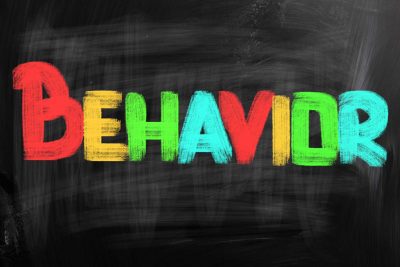When the behavior of a student with an IEP gets in the way of his or her learning or that of others, the IEP team must develop behavior goals or a behavior plan. Behavior plans are not punitive. They are positive plans describing how the school will support positive behavior through instruction or changing the Read More
Healthcare transition, like all other aspects of transitioning to adult care and services, can be difficult. However, if teenagers and families plan ahead for healthcare changes that occur when a child becomes an adult, things can go smoothly and be successful. Here are some resources and information for making the health care transition to adult Read More
Use this step-by-step checklist to track your child’s progress through the evaluation process. Child Find is the requirement that all school districts must identify all children within their boundaries, ages birth through 21 who have disabilities. Any child can be brought to the attention of a school district by any person (parent, school personnel, or Read More
Autism: a developmental disability significantly affecting verbal and nonverbal communication and social interaction, generally evident before age three, that adversely affects a student’s educational performance. Other characteristics often associated with autism are engagement in repetitive activities and stereotyped movements, resistance to environmental change or change in daily routines, and unusual responses to sensory experiences. Autism Read More
Where to Begin When A Student Needs Help A toolkit to guide you through the special education process in Washington State When a student has unmet needs and may need new or different school-based services, figuring out what to do next can feel confusing or overwhelming. PAVE provides this toolkit to support families in taking Read More
Legal Documents Letter of intent: a personal document expressing your wishes for your child which are not included in the will. It has no legal standing, but acts as a guide for guardians, Power of Attorney agents, and trustees. It can be provided to your selected guardians and a copy can be saved with the Read More
Overview: Full Article Thinking about the future when you will no longer be available to help your child because of death or a condition where you cannot participate in their care can be emotionally difficult. On top of that, this planning process is full of important decisions with significant impacts on your child’s future. To Read More
A Brief Overview Every family experiences holidays and end-of-year transitions differently. This article provides a sampling of ideas for families with children experiencing special healthcare needs. If a child also experiences behavioral difficulties, you may wish to read Home for the Holidays: The Gift of Positive Behavior Support Here are some quick takeaways: Full Article Read More
It’s the most wonderful time of the year, that is, until… Sensory overload can happen to anyone. It is not specific to any single age or disability. In fact, it can also happen to people who do not have a disability. Whether your sensory systems are functioning as usual for you or disordered, your body needs Read More
*Adapted from OSEP’s complete list of acronyms Washington State Specific Terms Military Terms
Glossary of Terms Alternative Dispute Resolution (ADR): also known simply as dispute resolution or procedural safeguards; options for resolving disagreements between parents and school districts; Washington’s options include facilitation, mediation, community complaint, and due process hearing. Americans with Disabilities Act (ADA): the federal law that makes it unlawful to discriminate against individuals with disabilities in Read More
A Step -by-Step guide to submitting and application for DDA on behalf of your child. The Washington State Developmental Disabilities Administration (DDA) provides services for individuals with developmental and intellectual disabilities. DDA is responsible for administering various Medicaid waivers that provide essential services to families who have members who have a developmental disability. Applying for Read More
Using the guiding questions below, prepare a one-pager of skills, challenges, concerns, and interests of your child on the next page. Hello My Name is (Insert name) I am (insert age) years old. My strengths are… Some important things you should know about me are… I respond well to… What does your child do well(i.e. Read More
This sample letter introduces a child to members of the IEP team by highlighting their strengths and individual personality, while also providing strategies and information about their disability. Use the Today Our Partnership Begins Worksheet to write an introductory letter for your child. Dear Mr./Mrs./Mx. Teacher, Today, our partnership begins. Here are some things about Read More
The Individualized Family Service Plan (IFSP) ends when a child turns 3. Transitioning to a services under an Individualized Education Program (IEP) requires a new evaluation and is a team-led process. Let this handout serve as your cheat sheet for the differences between the IFSP and IEP. Individualized Family Service Plan(IFSP) Individualized Education Program(IEP) Ages: Read More

